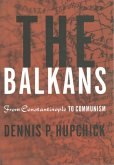This book examines how national and ethnic identities are being reforged in the post-Soviet borderland states. The first chapter provides a conceptual and theoretical context for examining national identities, drawing in particular upon post-colonial theory. The rest of the book is divided into three parts. In Part I, the authors examine how national histories of the borderland states are being rewritten especially in relation to new nationalising historiographies, around myths of origin, homeland, and descent. Part II explores the ethnopolitics of group boundary construction and how such a politics has led to nationalising policies of both exclusion and inclusion. Part III examines the relationship between nation-building and language, especially with regard to how competing conceptions of national identity have informed the thinking of both political decision-takers and nationalising intellectuals, and the consequences for ethnic minorities. Such perspectives on nation-building are illustrated with substantive studies drawn from the Baltic states, Ukraine, and Belarus, Transcaucasia, and Central Asia.
Bitte wählen Sie Ihr Anliegen aus.
Rechnungen
Retourenschein anfordern
Bestellstatus
Storno









